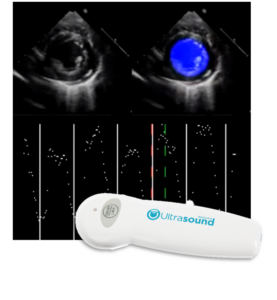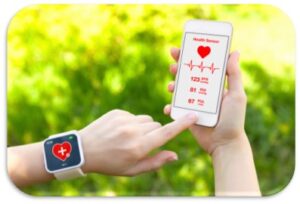Design and Engineering for Humanity
We research on developing energy-efficient, real-time embedded systems coupled with artificial intelligence and machine learning models. Our focus is designing these technologies for biomedical and environmental applications. With a vision to revolutionize healthcare and environmental monitoring, we’re creating systems that can process data in real-time, enabling rapid, accurate diagnostics and ecological insights. By optimizing power consumption and leveraging advanced algorithms, our research aims to reduce costs, improve patient care, and contribute to a greener, more sustainable planet.
Research Topics

Smart Real-Time Infant Monitoring System
This research project presents the development of an infant smart monitoring system using multiple non-invasive sensors to detect various physiological functions. The system can evaluate different physiological activities such as respiration, movement, noise, position, ambient temperature, and humidity. By processing the acquired data from different sensor modules, the system can generate alarm signals for adverse situations such as the occurrence of apnea, seizure, or noisy and uncomfortable environmental conditions. The system will also detect critical respiratory conditions by analyzing breathing data and blood oxygen level (SpO2) using machine learning (ML) models such as neural networks. The proposed system allows the caregiver to monitor the patient’s condition remotely by implementing wireless communication with a remote computer or a cell phone.

Handheld Ultrasound Device
This research focuses on developing a handheld ultrasound device capable of real-time video processing and detecting diverse cardiac and abdominal abnormalities. This innovation leverages advanced and optimized machine learning models to provide instant insights into a patient’s health. By seamlessly integrating ultrasound imaging and AI-driven diagnostics, we empower healthcare professionals with a portable, rapid, and accurate early detection and monitoring tool. This device promises to revolutionize point-of-care medicine, enhance diagnostic precision, and improve patient outcomes, ultimately bridging the gap between cutting-edge technology and life-saving healthcare.

AI Embedded Sleep Apnea Monitoring Device for Adults
The development of wearable, intelligent, and real-time monitoring of biological signals is gaining significant attention, especially in precision health. Apnea is one of the leading causes of death not only in the USA but also in numerous developing countries in the world, and the condition is critical among adults aged over 40. Currently, the diagnosis of apnea requires the patients to go through overnight sleep studies, such as polysomnography (PSG) or pneumocardiogram, for over 12 to 24 hours period, which is expensive and time-consuming. During sleep studies, numerous sensors are attached to the subjects’ body and face, causing them a great deal of inconvenience. The manual scoring of the apneic events from the PSG data is very time-consuming and demands specially trained sleep experts. Thus, it necessitates the importance of the design and development of a compact and wearable apnea detection device that alleviates these problems by also utilizing AI/machine learning algorithms that can automatically detect apneic events from the data collected by the sensors.